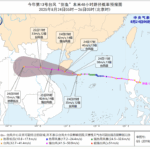body {
font-family: Arial, sans-serif;
line-height: 1.6;
margin: 0;
padding: 20px;
background-color: #f4f4f4;
}
.article-container {
max-width: 800px;
margin: 0 auto;
background: white;
padding: 20px;
border-radius: 8px;
box-shadow: 0 0 10px rgba(0,0,0,0.1);
}
h1 {
color: #333;
text-align: center;
}
.image-container {
text-align: center;
margin: 20px 0;
}
.image-container img {
max-width: 100%;
height: auto;
border-radius: 8px;
}
.image-caption {
font-style: italic;
color: #666;
margin-top: 8px;
}
.content {
color: #444;
}
.info-box {
background-color: #e9f7fe;
border-left: 4px solid #2196F3;
padding: 15px;
margin: 20px 0;
border-radius: 4px;
}
Revolutionary Discovery in Space Exploration

Scientists have made a groundbreaking discovery that could reshape our understanding of the universe. The research team has identified a new planetary system with characteristics that suggest the potential for supporting life.
- Three Earth-sized planets discovered in habitable zone
- Planets show evidence of water vapor in atmospheres
- System located 120 light-years from Earth
- Temperatures suitable for liquid water
The discovery was made using advanced telescopic technology that can analyze atmospheric composition from incredible distances. Researchers observed the planets as they passed in front of their host star, allowing for detailed analysis of their atmospheric properties.
“This represents one of the most significant findings in recent astronomical history,” stated the lead researcher. “The conditions we’ve observed are remarkably similar to those found on early Earth.”

Further observations are planned using next-generation space telescopes scheduled for launch in the coming years. These advanced instruments will provide even more detailed information about the planetary system’s characteristics.
The research team emphasizes that while these findings are exciting, much more study is needed to determine if these planets could actually support life. Future missions may include specialized probes designed to study these distant worlds in greater detail.



